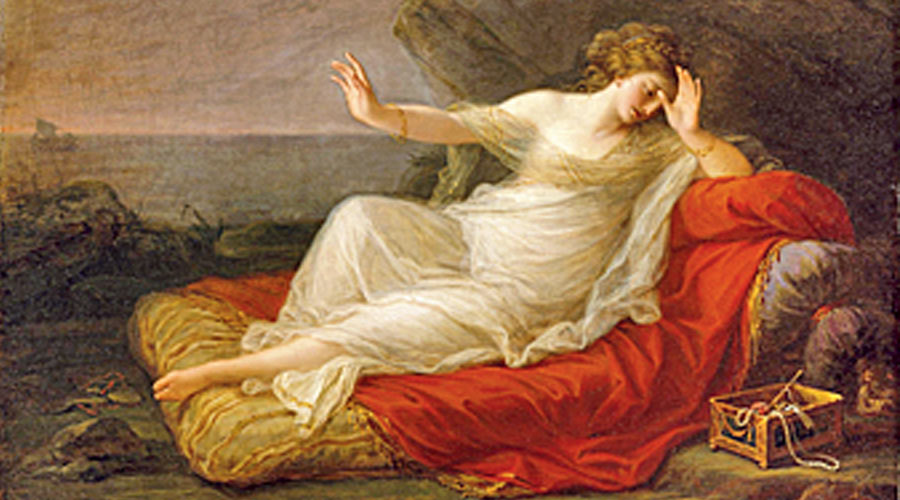Book: Ariadne
Author: Jennifer Saint
Publisher: Headline
Price: Rs 799
Jennifer Saint’s Ariadne belongs to the wave of retellings of ancient myths currently inundating the market. Prominent names in this bestselling tide are Pat Barker’s The Silence of the Girls, Natalie Haynes’s A Thousand Ships, Genevieve Gornichec’s The Witch’s Heart and, of course, Madeline Miller’s trendsetting Circe. In their alikeness, these works express attitudes towards ancient myths growing popular among a certain kind of cis-hetero woman feminist. Yet it is a pity that none of them has much to say about the canonical material other than a comment on the silencing of the oppressed, which is hardly a new insight. Even those misogynistic Greeks of the City Dionysia have been there, done that, and even bought the tunic.
Ariadne tells the famous story of the Cretan princess of Greek myth who betrays her father and his kingdom for the love of a man. Saint combines this with another version of the subsequent story of Ariadne as the consort of the god, Dionysus. Although she seems to be familiar with the numerous versions of the Ariadne myth, in a crucial narrative moment Saint’s source is lamentably limited to Ovid’s Heroides. She follows Ovid’s lead as meekly as her heroine sticks to her menfolk. “Catullus 64”’s furious heroine, who puts a curse on Theseus, is lost in Ariadne’s self-described “sniveling despair”. This, after saying that she wants to be like Medusa. On a related note, the young Ariadne tells us how her special talent is dancing. However, the wife of that most notorious of revellers, Dionysus, never dances with her husband. She does weave a tapestry of oppositional tales, but it is an isolated action, never to be repeated.
Little ironies like these abound, and most of them are related to the reductive characterizations. In the Ariadne world, women desire either freedom or domesticity and are uniformly relatable to a modern audience. Ariadne rebels when her hormones betray her, but with wifehood firmly in sight; her sister, Phaedra, is ready to use sex for freedom. Phaedra’s point of view, which appears out of nowhere and gives the lie to the title, serves this binary model. The sisters never engage deeply with the larger questions of their existence. Saint says that this book is about sisterhood, but Ariadne feels no interest in understanding the maenads (until she is forced to), and her divine arch-enemy is Hera. The men and the god are blind fools playing with power. The only virtuous male is Hippolytus, but we know how that story ends.
It would be unfair perhaps to dismiss this debut as yet another iteration of a fad. The novel has moments of arresting imagery (“hatred like a birth”) and some Homeric referencing (“wine-dark waves”, “rosy-fingered dawn,” nested narratives). And, although the protagonists have virtually no emotional agency, Saint does manage to hold the reader’s attention for 400-odd pages. There are also sporadic attempts to frame the tale within the traditional fate versus free will debate. But the language is sometimes anachronistic, mixing formal and colloquial registers with no discernible strategy and, often, sounds like a young-adult romance.
The old stories of the world wield their power partly through an ability to infuse the quotidian with the possibility of the numinous. Saint, however, shrinks the idea of the granddaughters of the sun to upper-class suburban stereotypes. She robs them of the ability to conceive their lives in the expansive strokes that inspire mortals to act like gods and make up the stuff of myth. The real tragedy of Saint’s heroines is that while their story may be a “riveting tale of love and betrayal,” that’s about all that it is.










